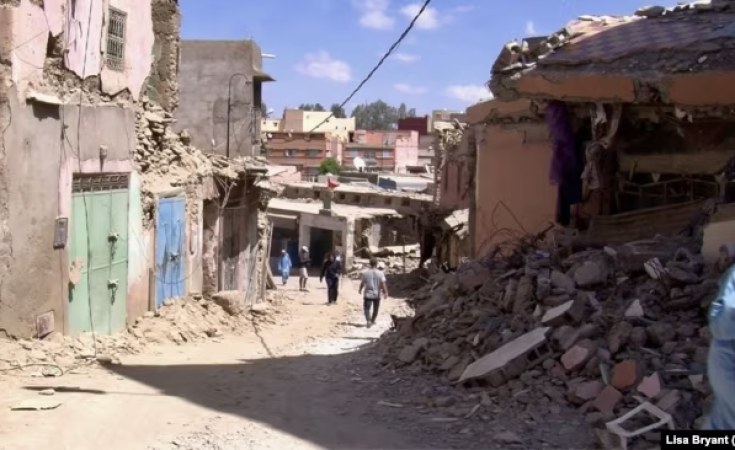On 8 September 2023, a 6.8 magnitude earthquake hit central Morocco, killing 2,862 people and leaving around 6,000 people injuredData source: Moroccan Ministry of Health, last update on 13 September. .
The earthquake mainly hit the rural area of the High Atlas Mountains, where there were landslides, collapses and paths were cut or difficult to use. In this region, access to remote and rural villages already difficult to reach has been further affected by the earthquake.
In the immediate aftermath of this tragedy, on 9 September, Médecins Sans Frontières (MSF) sent emergency teams to assess the humanitarian and medical situation in the most affected areas, in the provinces of Al Haouz, Taroudant and Chichaoua. Five MSF teams assessed 30 locations in total.
The overall response of the Moroccan authorities, bilateral partners and the Moroccan people was remarkable. There was a rapid mobilisation of emergency response plans from the Moroccan Ministry of Health, military and civil protection. The installation of advanced medical posts, field hospitals and referral capacity were crucial to ensure an urgent medical and humanitarian response in a timely manner.
"We saw entire villages destroyed, roads collapsing, and electricity cut off," says Fouzia Bara, MSF nurse who was part of our first teams in Morocco.
"Despite this, the Moroccan authorities, with the support of some states, managed to remove people from under the rubble, treat the injured, use helicopters to transport the injured from the most remote areas, and distributed food and other materials to affected people."
Our teams noted the comprehensiveness of the Moroccan government's response and found very few gaps. On top of the assessment, we provided six donations in response to specific needs expressed at the time by health centres or hospitals between 12-17 September.
These targeted donations were coordinated with the Moroccan authorities. They contained medical equipment and medicines, such as injectable medicines, analgesics (pain killers), antibiotics, insulin and medical equipment.
Currently, people most severely affected by this crisis urgently need psychological support. This includes search and rescue teams and frontline volunteers.Our teams talked to dozens of distressed women and men in heavily affected areas in all locations that we assessed.
Most had lost relatives, friends or saw their houses and villages flattened. Some were still waiting for the bodies of their loved ones to be recovered, acutely aware that live rescue was no longer an option.
We will provide mental health activities and psychological first aid support to local organisations and people who were affected, as well as to frontline workers.
Our teams will work mostly through networks of Moroccan psychologists, social workers, heath promoters and other volunteers, who have been mobilised since the beginning of the response. Psychological first aid is key to reducing coping mechanisms and connecting people to existing services.
Our main activities will consist of providing psychological support to people affected and to frontline volunteers, to support Moroccan Ministry of Health medical and paramedical teams, to run health promotion and mental health campaigns, while also training and supporting local groups on psychological first aid.
MSF began working in Morocco in 1997 to provide care to communities excluded from healthcare in Rabat, Casablanca and Tangier. Our programmes were focused on increasing access to maternal and sexual healthcare.
In the early 2000s, we began providing support to migrants arriving in Morocco by visiting hostels where people stayed and providing outpatient consultations and referrals through mobile clinics.
In 2010, we provided care to migrants injured during mass raids and expulsions by the Moroccan police force. In 2013 we handed our projects over to local health and human rights organisations.


